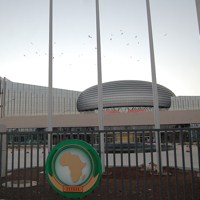A little more than a decade ago, in July 2002, the African Union (AU) was formed against an inauspicious backdrop. For Africa, the previous decade had been defined by conflict, state collapse, failed peacekeeping missions and even genocide. So dire had Africa’s condition become that in May 2000 the Economist captured its malaise under the infamous rubric, “the hopeless continent.” The AU’s mission over the past decade was in part to challenge and rewrite such bleak narratives. Looking back, its record is mixed, particularly in its attempts to position itself as the principal vehicle for the advancement of democratization on the continent.
The AU’s formation marked a break with the depressing history of its flawed predecessor, the Organization of African Unity (OAU), which proved largely irrelevant as many African states descended into civil war or despotism and the continent became a theater of Cold War competition. The AU’s novel features included an explicit commitment to democratization and good governance and a recognition of the legitimacy of intervention in the event of crimes against humanity or genocide. The latter was an early articulation of the “responsibility to protect” doctrine that placed the AU ahead of the United Nations itself and represented a firm repudiation of the OAU’s noninterference doctrine. In addition, the AU rejected unconstitutional changes of government, with suspension from AU membership for those states where such changes occurred. The AU has also been active in designing a new continental security architecture, and has already conducted peace operations with varying degrees of effectiveness in Burundi, Sudan and Somalia.
But in its second decade, the AU faces a range of problems. These include coordinating with various subregional bodies; the need to build capacity for peacekeeping operations and translate the “African solutions to African problems” mantra into reality; and preventing the possibility, common to all multilateral bodies, that the AU may become a vehicle for the interests of the major powers within it, in this case South Africa and Nigeria, while at the same time preventing tensions between the two from fatally undermining the organization.

